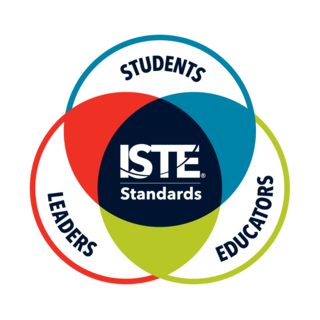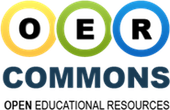Related Research Articles
An instructional theory is "a theory that offers explicit guidance on how to better help people learn and develop." It provides insights about what is likely to happen and why with respect to different kinds of teaching and learning activities while helping indicate approaches for their evaluation. Instructional designers focus on how to best structure material and instructional behavior to facilitate learning.
Science education is the teaching and learning of science to non-scientists, such as school children, college students, or adults within the general public. The field of science education includes work in science content, science process, some social science, and some teaching pedagogy. The standards for science education provide expectations for the development of understanding for students through the entire course of their K-12 education and beyond. The traditional subjects included in the standards are physical, life, earth, space, and human sciences.
BrainPop is a group of educational websites with over 1,000 short animated movies for students in grades K-12, together with quizzes and related materials, covering the subjects of science, social studies, English, math, engineering and technology, health, and arts and music. BrainPop is used in more than 25% of U.S. schools and also offers subscriptions for families and homeschoolers. It is also used in schools in Mexico, France, Spain, Israel and several other countries, where it offers videos in local languages that are designed for students in those countries. BrainPop is available by subscription but has some free content, including a movie of the day, several free movies from each topic area, educators materials, including lesson plans, and an extensive library of educational games called GameUp. Its free smartphone and tablet application accesses BrainPop's free and subscription content.
Educational technology is the combined use of computer hardware, software, and educational theory and practice to facilitate learning. When referred to with its abbreviation, EdTech, it is often referring to the industry of companies that create educational technology.
Reflective practice is the ability to reflect on one's actions so as to engage in a process of continuous learning. According to one definition it involves "paying critical attention to the practical values and theories which inform everyday actions, by examining practice reflectively and reflexively. This leads to developmental insight". A key rationale for reflective practice is that experience alone does not necessarily lead to learning; deliberate reflection on experience is essential.
Technology integration is the use of technology tools in general content areas in education in order to allow students to apply computer and technology skills to learning and problem-solving. Generally speaking, the curriculum drives the use of technology and not vice versa. Technology integration is defined as the use of technology to enhance and support the educational environment. Technology integration in the classroom can also support classroom instruction by creating opportunities for students to complete assignments on the computer rather than with normal pencil and paper. In a larger sense, technology integration can also refer to the use of an integration platform and APIs in the management of a school, to integrate disparate SaaS applications, databases, and programs used by an educational institution so that their data can be shared in real-time across all systems on campus, thus supporting students' education by improving data quality and access for faculty and staff.
"Curriculum integration with the use of technology involves the infusion of technology as a tool to enhance the learning in a content area or multidisciplinary setting... Effective integration of technology is achieved when students are able to select technology tools to help them obtain information in a timely manner, analyze and synthesize the information, and present it professionally to an authentic audience. The technology should become an integral part of how the classroom functions—as accessible as all other classroom tools. The focus in each lesson or unit is the curriculum outcome, not the technology."
The Master of Education is a master's degree awarded by universities in many countries. This degree in education often includes the following majors: curriculum and instruction, counseling, school psychology, and administration. It is often conferred for educators advancing in their field. Similar degrees include the Master of Arts in Education and the Master of Science in Education. However, some M.A.E. programs are analogous to the Master of Arts in Teaching, not the M.Ed.
Dr. Kathleen P. King is an American author and educator. As of 2006 she is a Professor and Director of Fordham University's Regional Educational Technology Center (RETC), Center for Professional Development and Program Director of the graduate program in Adult Education and Human Resource Development at the Graduate School of Education.

Teacher education TE (TE) or teacher training refers to the policies, procedures, and provision designed to equip (prospective) teachers with the knowledge, attitudes, behaviors, and skills they require to perform their tasks effectively in the classroom, school, and wider community. The professionals who engage in training the prospective teachers are called teacher educators.
Podcasting refers to the creation and regular distribution of podcasts through the Internet. Podcasts, which can include audio, video, PDF, and ePub files, are subscribed to and downloaded through web syndication or streamed online to a computer or mobile device. Subscribers are then able to view, listen to, and transfer the episodes to a variety of media players, or podcatchers. Though similar to radio, there is no larger regulatory group or oversight with podcasts. Instead, podcasts simply consist of the creators and their listeners.
An edublog is a blog created for educational purposes. Edublogs archive and support student and teacher learning by facilitating reflection, questioning by self and others, collaboration and by providing contexts for engaging in higher-order thinking. Edublogs proliferated when blogging architecture became more simplified and teachers perceived the instructional potential of blogs as an online resource. The use of blogs has become popular in education institutions including public schools and colleges. Blogs can be useful tools for sharing information and tips among co-workers, providing information for students, or keeping in contact with parents. Common examples include blogs written by or for teachers, blogs maintained for the purpose of classroom instruction, or blogs written about educational policy. Educators who blog are sometimes called edubloggers.

Will Richardson is an author and speaker on educational technology. He has many published works, including the book, Blogs, Wikis, Podcasts, and other Powerful Web Tools for Classrooms, and the edublog Weblogg-ed which he wrote from 2001 to 2011. Richardson is also active on the web; he has both a Twitter account and YouTube channel.
Inquiry-based learning is a form of active learning that starts by posing questions, problems or scenarios. It contrasts with traditional education, which generally relies on the teacher presenting facts and their own knowledge about the subject. Inquiry-based learning is often assisted by a facilitator rather than a lecturer. Inquirers will identify and research issues and questions to develop knowledge or solutions. Inquiry-based learning includes problem-based learning, and is generally used in small scale investigations and projects, as well as research. The inquiry-based instruction is principally very closely related to the development and practice of thinking and problem solving skills.

Jeff Lebow is a webcasting pioneer and community builder and internet philanthropist in the fields of online learning and new media. Jeff is the founder of Worldbridges and the co-founder of EdTechTalk. He has long been an advocate of the value of live interactive webcasting as a vehicle of social change and cross-cultural understanding. He has personally supported or actually produced over 500 webcasts and currently is the sole financial supporter of an elaborate community of communities through his company worldbridges.
A WebQuest is an inquiry-oriented lesson format in which most or all the information that learners work with comes from the web. These can be created using various programs, including a simple word processing document that includes links to websites.

The ISTE Standards, formerly known as the National Educational Technology Standards (NETS), are standards for the use of technology in teaching and learning. They are published by the International Society for Technology in Education (ISTE), a nonprofit membership association for educators focused on educational technology. They include the ISTE Standards for Students, which list skills and attitudes expected of students. They also include the ISTE Standards for Educators, ISTE Standards for Administrators, ISTE Standards for Coaches and ISTE Standards for Computer Science Educators.

The Joan Ganz Cooney Center is an independent, non-profit, non-partisan research and innovation group founded by Sesame Workshop in order to advance children's literacy skills and foster innovation in children's learning through digital media.

The Institute for the Study of Knowledge Management in Education (ISKME), is a 501(c)(3) non-profit organization founded in 2002. Located in Half Moon Bay, California, its mission is to help schools, colleges, and other educational institutions to gather and use data, share information, and make knowledge openly accessible to students, educators, and the public.

OER Commons is a freely accessible online library that allows teachers and others to search and discover open educational resources (OER) and other freely available instructional materials.

The International Society for Technology in Education (ISTE) is a nonprofit organization that serves educators interested in the use of technology in education. ISTE provides educational technology resources to support professional learning for educators and education leaders, including the ISTE Conference & Expo—an ed tech event, and the ISTE Standards for learning, teaching and leading with technology. ISTE also provides a suite of professional learning resources to members, including webinars, online courses, consulting services, books, and peer-reviewed journals and publications.
References
- ↑ "The Edublog Awards 2005! | incorporated subversion" . Retrieved 2019-05-11.
- ↑ "Using Collaborative Learning in Classrooms and Libraries". www.findingdulcinea.com. Retrieved 2021-02-09.
- ↑ Scott McLeod; Chris Lehmann (2011-10-25). What School Leaders Need to Know About Digital Technologies and Social Media. John Wiley & Sons. p. 30. ISBN 978-1-118-02224-5.
- ↑ Daniel Araya; Michael A. Peters (2010). Education in the Creative Economy: Knowledge and Learning in the Age of Innovation. Peter Lang. p. 521. ISBN 978-1-4331-0744-3.
- ↑ http://edublogawards.com/and-the-2008-winners-are/ List of Edublog award winners